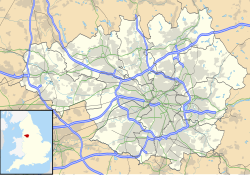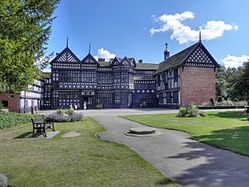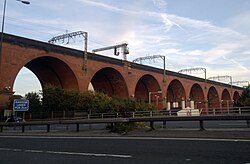 Vernon Mill in 2011 | |
Location in Greater Manchester | |
| Cotton | |
|---|---|
| Spinning | |
| Location | Portwood, Stockport, Greater Manchester, England |
| Owner | Vernon Spinning Co |
| Further ownership |
|
| Coordinates | 53°24′51″N2°08′45″W / 53.4143°N 2.1457°W |
| Construction | |
| Floor count | 6 |
| Design team | |
| Architecture Firm | Joseph Stott and Son |
Listed Building – Grade II | |
| Official name | Vernon Mill |
| Designated | 4 November 1996 |
| Reference no. | 1268055 |
| References | |
| [1] Helen Clapcott | |
Vernon Mill is a former cotton spinning mill in Portwood, Stockport, Greater Manchester, England. Built in 1881, it was taken over by the Lancashire Cotton Corporation in 1930 and later sold on. Although still in business use, it is now a grade II listed building. [2]







